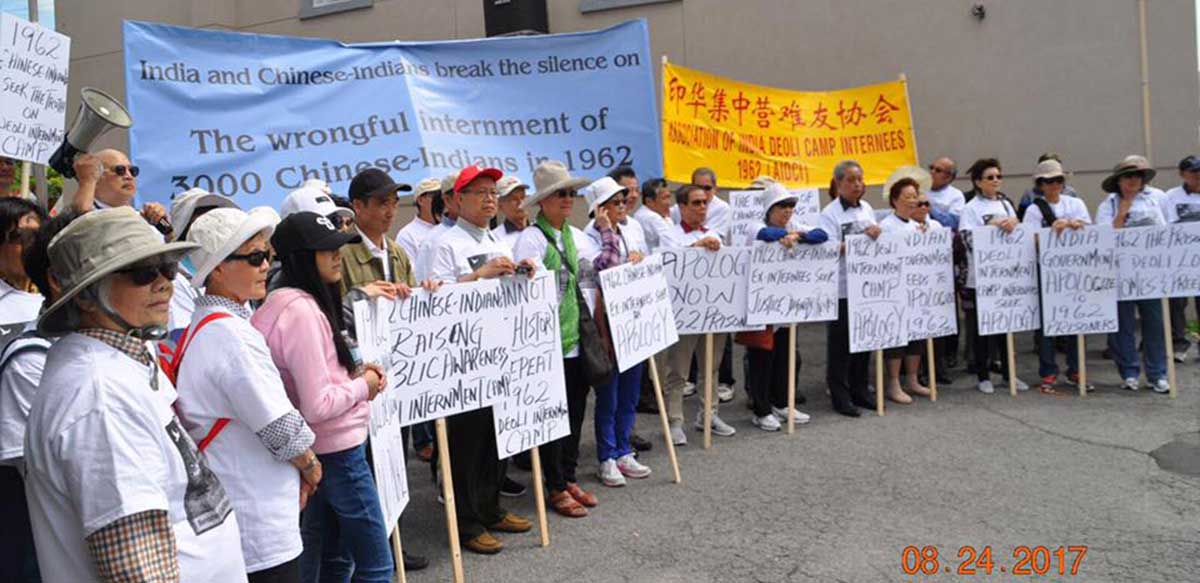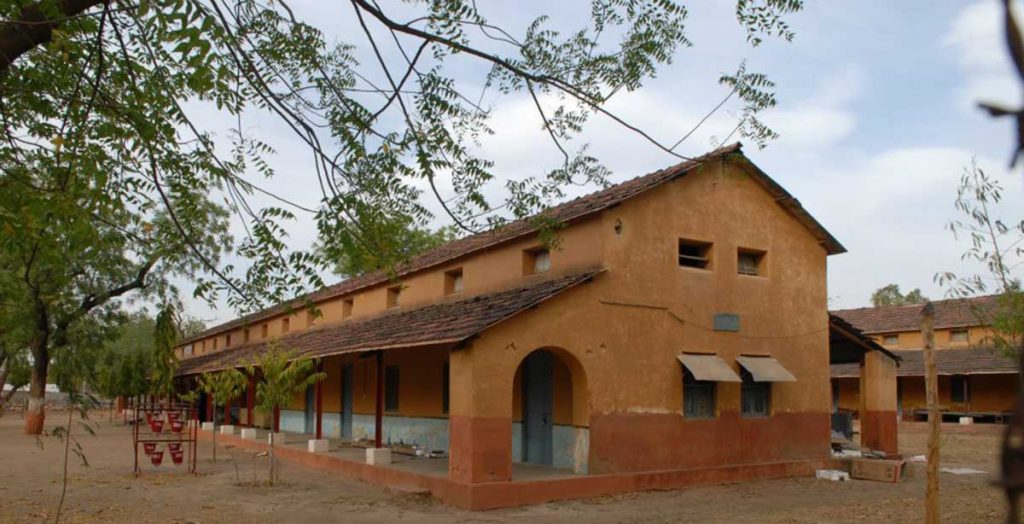NRI
Canada’s Indian-Chinese Community Demands Apology For 1962 Internment

Indian-Chinese people in Canada staged a demonstration against the internment they faced during the 1962 war.
The issue of internment of the Chinese-Indians in Deoli, Rajasthan, during the 1962 war between the two countries has been raised time and again by members of the community. The Indian government has maintained stoic silence on the matter over the years. For the first time in 55 years, the Chinese-Indian community last week staged a demonstration in front of the Indian High Commission in Ottawa to demand an apology for the way they were treated then.
The Background
At the start of the 1962 Sino-Indian war, even after public condemnation by the Chinese-Indians against Beijing, there was public outcry against them. They were viewed with suspicion and mistrust.
Kwai-Yun Li, an Indian of Chinese descent, had, according to The Caravan, written in her Master’s thesis submitted to the University of Toronto: “The Indian government cast the Chinese government as the villain and a threat to India’s newly-found independence and Indian national security. By extension, the Chinese living in India were portrayed as villains too and not to be trusted. Whipped up by the national furor, mainstream Indians ostracized and sometimes brutalized Chinese residents and attacked and destroyed their homes and businesses.”
Then came the Ordinance, which became the Defence of India Act, promulgated by then President S Radhakrishnan, allowing the “apprehension and detention in custody of any person suspected of being of hostile origin”.

Photo Credit: AIDC Facebook page
The Deoli Camp
Almost entire Chinese-Indian communities in Assam and Bengal were uprooted and transferred by trains to Deoli, according to The Wire. They were told their stay in the camps, which hosted prisoners of war (Italians, Germans and Japanese) during the Second World War, would only be for weeks, but it stretched for two to four years. Out of the 3,000 families who lived in the Deoli barracks, 26 did not come out alive.
Once they were released, most of the people moved to other countries, including China, Australia, US and Canada, finding it difficult to settle in India amid an atmosphere of suspicion.
Survivor Stories
Survivors started to meet informally, had annual events and formed the Association of India Deoli Camp Internees 1962 (AIDC) in 2010 with a goal to “pressure the Indian government for a formal apology to the Chinese-Indian citizens and an acknowledgment of the 1962 internment”.
Their stories have been coming out regularly, such as a blog run by Yeeva Cheng, daughter of a camp survivor, called ‘The Deoli Diaries: A Safe Haven for Ex-Internees and their Stories’; a Master’s thesis by Kwai-Yun Li titled ‘Deoli Camp: An Oral History of Chinese Indians from 1962 to 1966’; documentaries on their lives; and even a 2015 visit to India by four survivors. However, they never got together publicly to talk about the chapter in their history.
On August 24, 53 internees and their families held a three-hour demonstration in front of the Indian High Commission in Ottawa, holding up placards calling for an apology from the Indian government. The demonstration included a two-minutes silence in memory of those who died during the internment, and public talk by the participants who shared the memories of the camp where they had lived under restrictions on their movement and amenities.
The Indian High Commission did not accept their petition, according to an AIDCI office bearer quoted by The Wire. On August 25, association president Ying Sheng Wong and two former presidents sent a letter to the Consulate General of India in Toronto.
India is not the first country said to have acted against its citizens of “hostile origin”. When war broke out between Japan and America, similar treatment was meted out to Americans of “Japanese ancestry”. In 1988, US President Ronald Reagan apologised to Japanese-Americans on behalf of his country. India has, however, remained silent so far.



